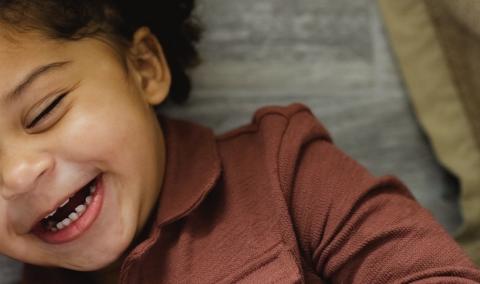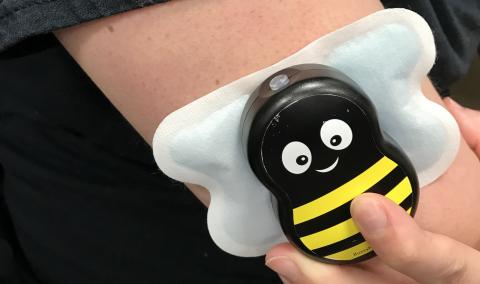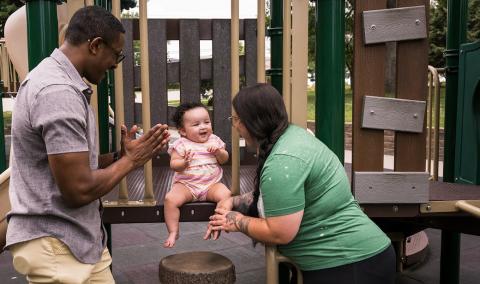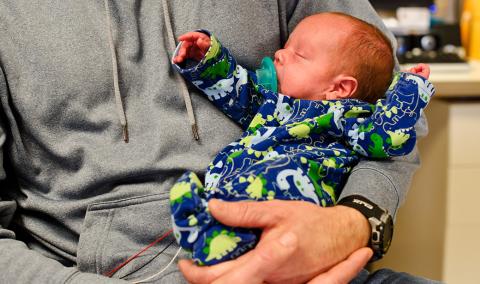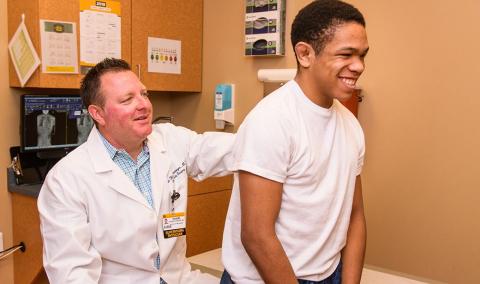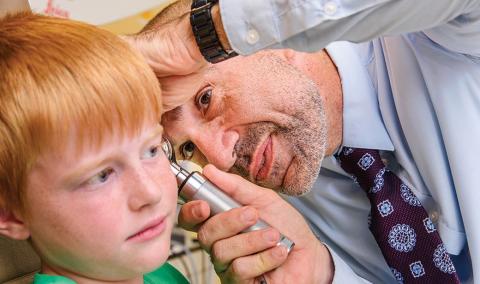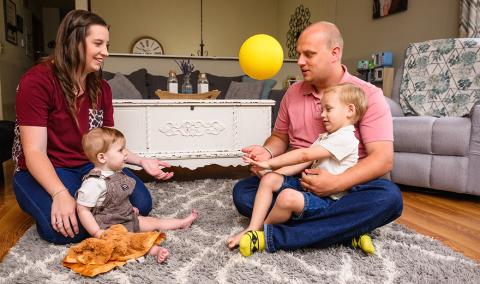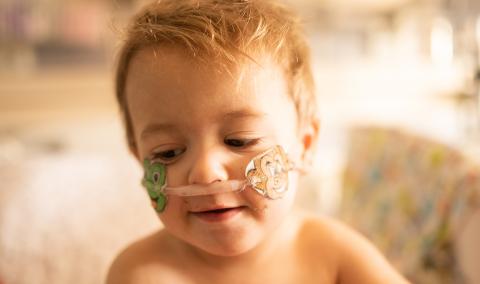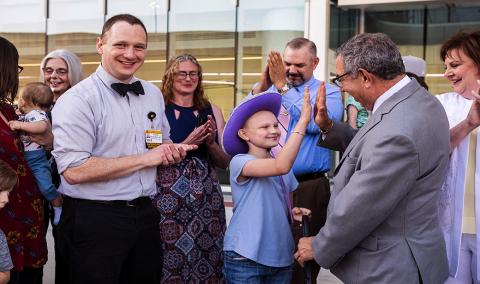Microtia refers to an under-developed or absent ear. When your child has microtia, you can count on the Children's Health specialists at Children’s Hospital to give you and your child compassionate, expert care.
Microtia may occur as part of hemifacial microsomia (HFM). In some cases, microtia may be the only physical indication that a child has HFM. This condition occurs more commonly on the right side, and happens on both sides in 10 percent of cases. Boys are more likely to have microtia than girls.
Treatment for children with microtia
Your child's plastic surgeon and otolaryngologist (ENT doctor) decide together on the timing of any surgery to the ear canal or middle ear for hearing. A series of procedures is required to reconstruct your child’s external ear. Your child must be at least six years of age before beginning this process so enough growth has taken place for adequate reconstruction.
Our surgeons can skillfully reconstruct the ear using your child’s own tissues. Cartilage taken from the ribs is used to build an ear and then implanted beneath the soft tissues on the side of the head.
Usually, either three or four operations are required to complete the reconstruction. The whole process takes about a year. The most extensive procedure is the first procedure for constructing the ear framework. The remaining procedures are relatively minor in comparison and can be done on an outpatient basis.
Frequently asked questions about microtia
Check out the answers to commonly asked questions about this condition.
Is the condition painful?
No, microtia does not cause children any pain or discomfort.
Are there different types of microtia?
Yes, microtia can occur on a spectrum from mild deformity to complete absence of the basic shape of the ear. Usually, some remnant of the earlobe is present but in an abnormal position and orientation.
What causes microtia?
Microtia may occur sporadically as a new diagnosis with no family history, or it may be inherited (genetic).
What are the main issues related to microtia?
Children with microtia usually have an unusual looking ear. Almost all children with significant microtia have abnormalities of the ear canal and/or middle ear and have abnormal hearing in the affected ear. An otolaryngologist (ear, nose and throat doctor) will evaluate your child. This specialist works as part of the craniofacial treatment team to decide whether they need to perform any surgery specifically to improve hearing or whether a hearing aid would be beneficial for your child.
Are there other problems that occur with microtia?
Since microtia is part of the spectrum of hemifacial microsomia, children with microtia may have any of the associated anomalies that occur with that condition.
What specialists will be involved in my child’s care?
The optimal treatment of children with microtia is achieved in a multidisciplinary setting, as we have here at MU Health Care Children’s Hospital.
- Geneticists help assign a diagnosis and counsel the family regarding the possibility for recurrence in future children.
- Craniofacial surgeons (plastic surgeons who have done additional specialized training) do most of the operations.
- Otolaryngologists (ENT doctor) address hearing problems or perform middle ear surgery, if necessary.
- Developmental pediatricians follow your child’s physical and mental development.
- Pediatric plastic surgery nurses are involved in coordinating care, counseling and education for families.
Related Conditions & Treatments
- Adolescent Medicine
- Chest Wall Deformities
- Down Syndrome
- Emergency Care for Kids
- Gastrostomy and Feeding Access Program
- Hyperbaric Oxygen Therapy
- Juvenile Diabetes
- Neonatology
- Pediatric Anesthesiology
- Pediatric Cancer
- Pectus Carinatum
- Pectus Excavatum
- Pediatric Cardiology
- Pediatric Dermatology
- Pediatric Development and Behavior
- Pediatric ENT (Ear, Nose and Throat)
- Pediatric Epilepsy
- Pediatric Eye Care
- Pediatric Gastroenterology
- Pediatric Infectious Diseases
- Pediatric Inpatient Rehabilitation
- Pediatric Nephrology
- Pediatric Neurology
- Pediatric Neurosurgery
- Pediatric Orthopaedics
- Pediatric Plastic Surgery
- Pediatric Primary Care
- Pediatric Psychiatry
- Pediatric Pulmonary Medicine
- Pediatric Sleep Medicine
- Pediatric Surgery
- Pediatric Surgical Services
- Pediatric Urology
- Pediatric Vascular Anomalies
- Pediatric Weight Management
- Sickle Cell Disease
- Aerodigestive Program




